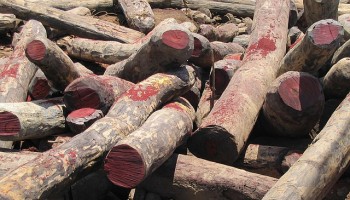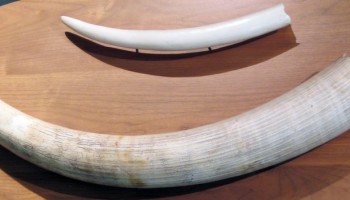“We found several shortcomings in the plan but the main issue was potential benefits for people who’ve been involved in illegal activity,” said Susanne Breitkopf, a forest policy manager for the Environmental Investigation Agency (EIA), to Mongabay.
The proposal was put to the standing committee of the Convention for International Trade in Endangered Species (CITES) earlier this month. It outlines a plan in which Madagascar would pay timber barons US$7 million either to access their hidden stockpiles of rosewood or to buy wood from them directly.
The aim of the plan is for Madagascar to achieve “stock zero”: that is, to eliminate all its stockpiles of rosewood, so it can keep better track of new illegal logging.
Madagascar has what the EIA calls “likely the largest and most valuable timber stockpile on Earth.”
It’s estimated at over two million precious logs. Since most of it is hidden in stashes belonging to local timber barons, this number is far from certain.
These logs, rosewood and ebony, fetch thousands on Chinese markets, where they are made into luxury furniture. They are hidden all over the country--outdoors and in walled compounds.
Many were logged illegally during political turmoil that followed a 2009 coup, which was sponsored in part by money from timber barons.
But an OCCRP investigation has discovered that Madagascar’s politicians have found ways to abet the trade for over a decade, allowing traders to launder their logs by giving them license to export wood felled by “acts of God.”
Now, timber traders are in Madagascar’s parliament. Meanwhile, the investigation called into question the methods Madagascar used to audit the wood allegedly stockpiled by timber barons for its business plan, finding that most timber barons refused to allow government auditors into their stockpiles.
African delegates to CITES opposed the plan as well, reported Mongabay, saying it could encourage illegal timber trade in their own countries.






